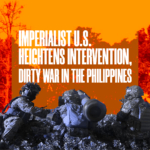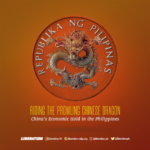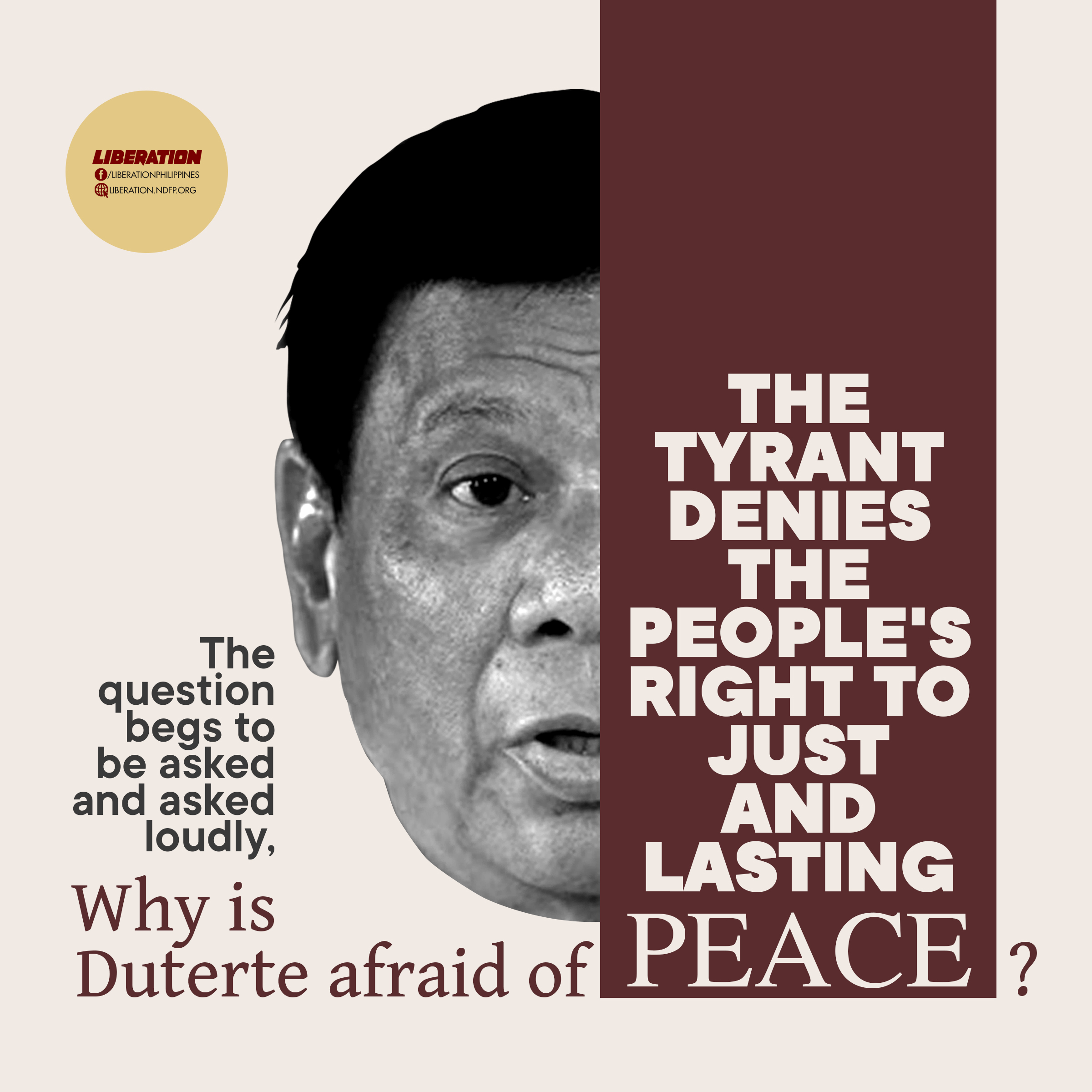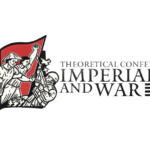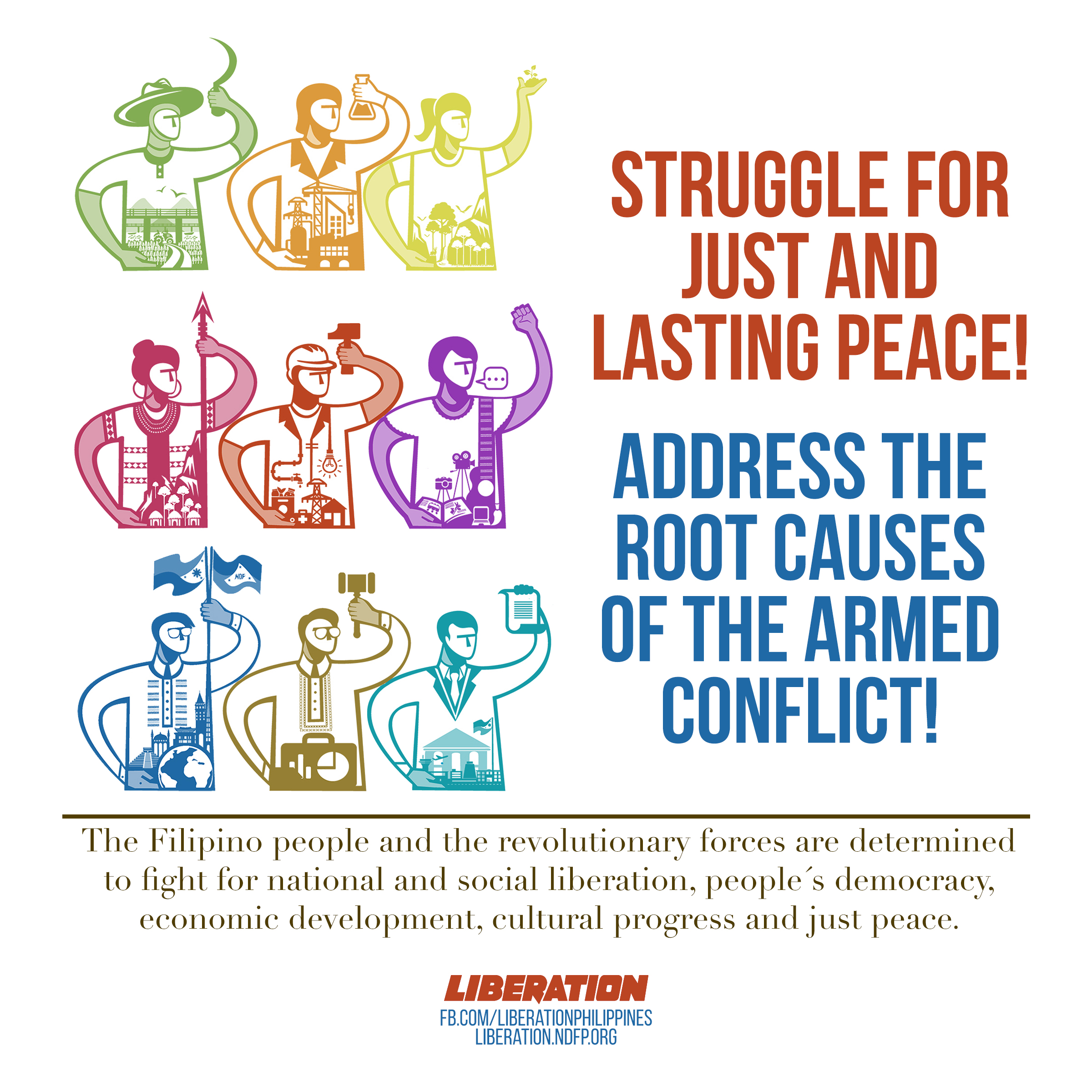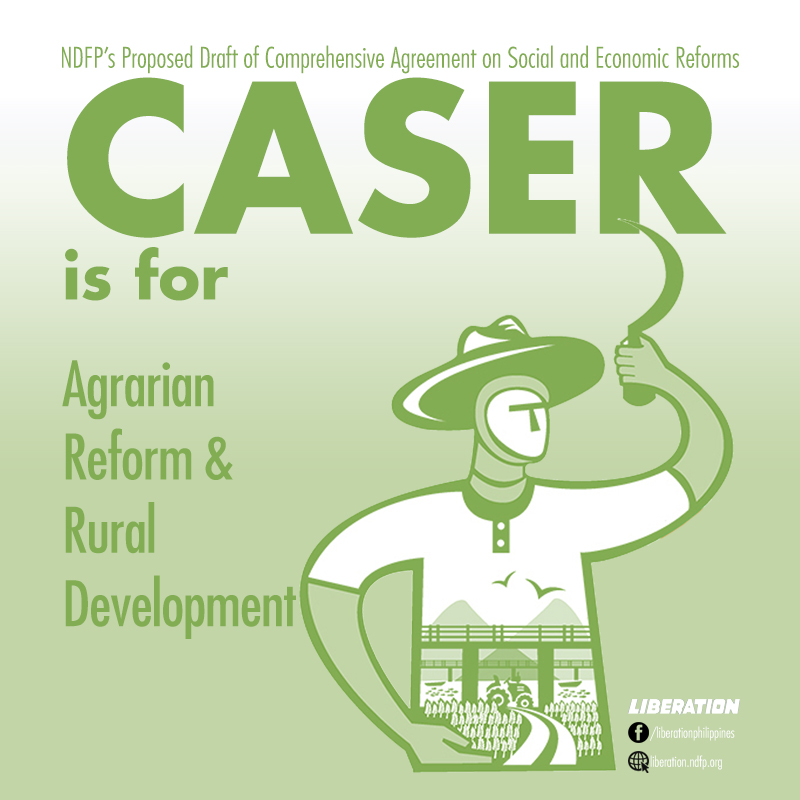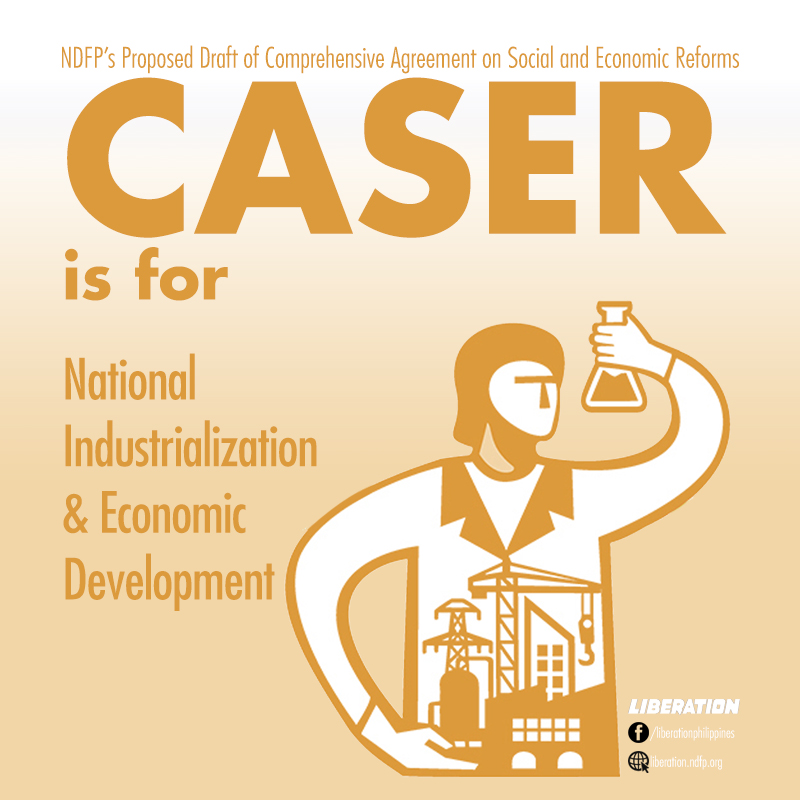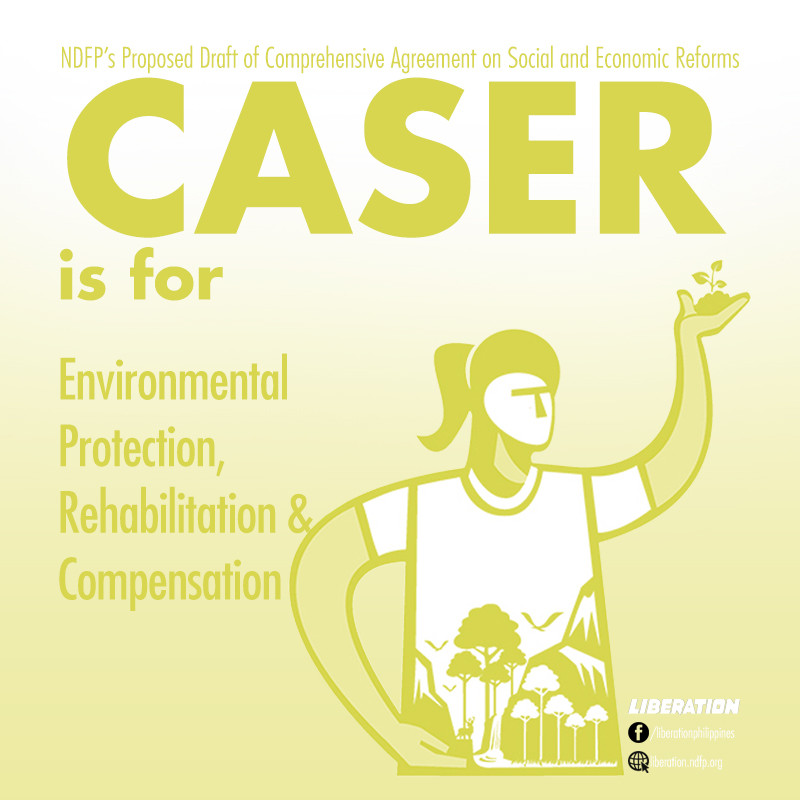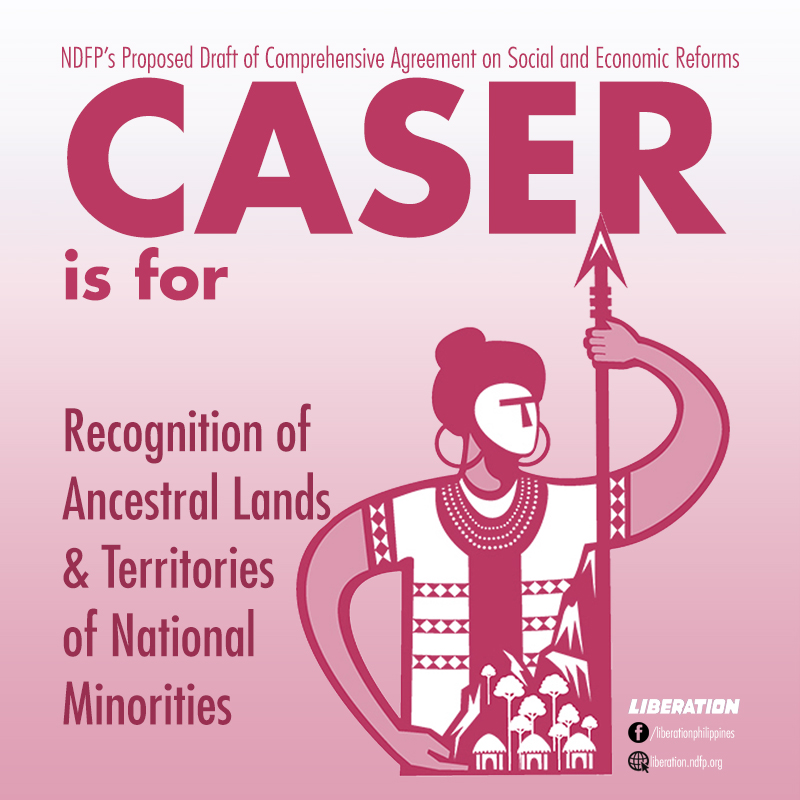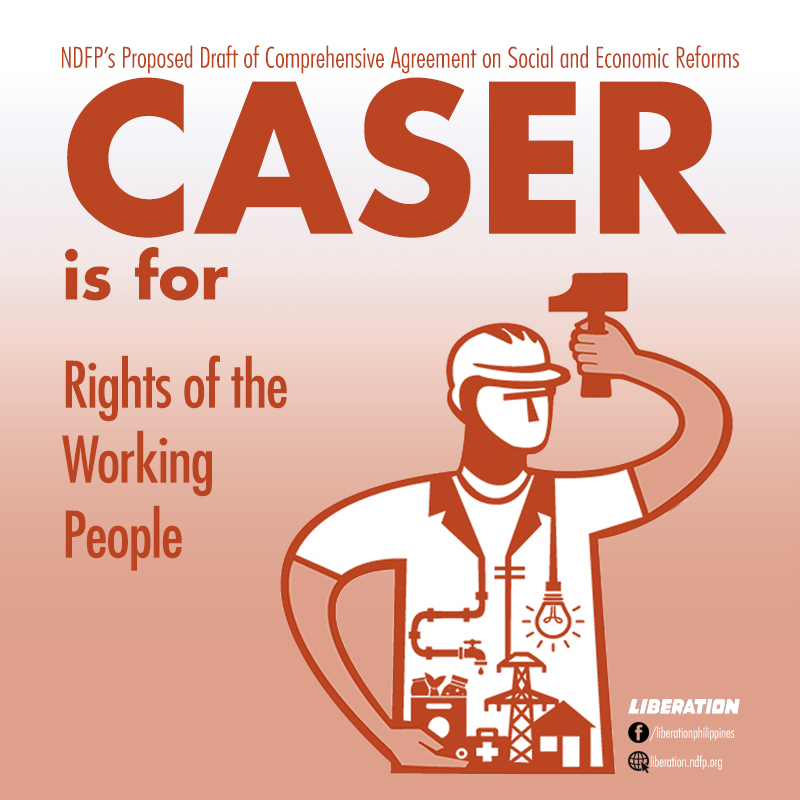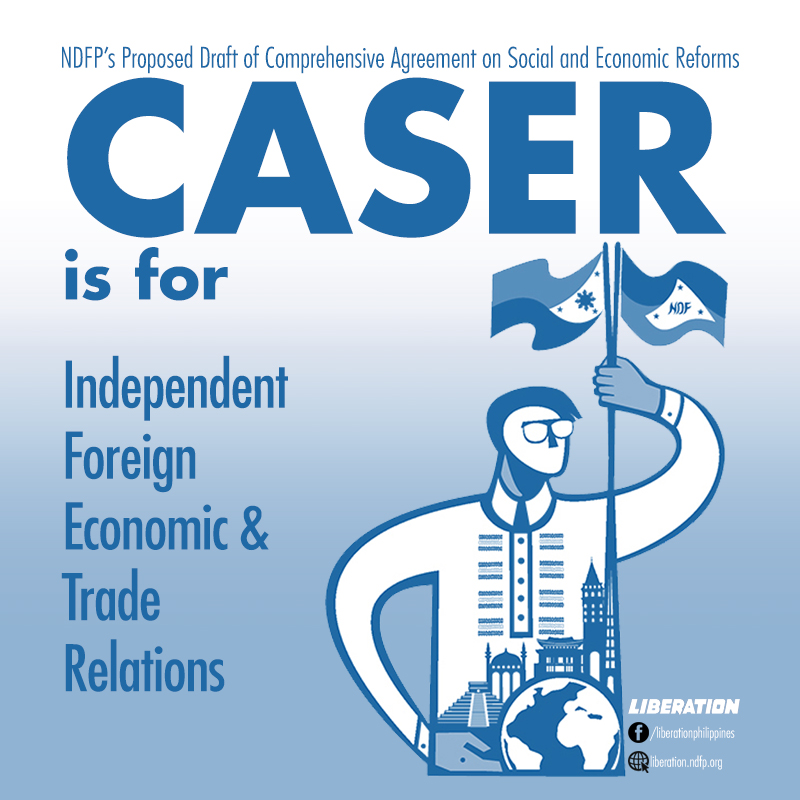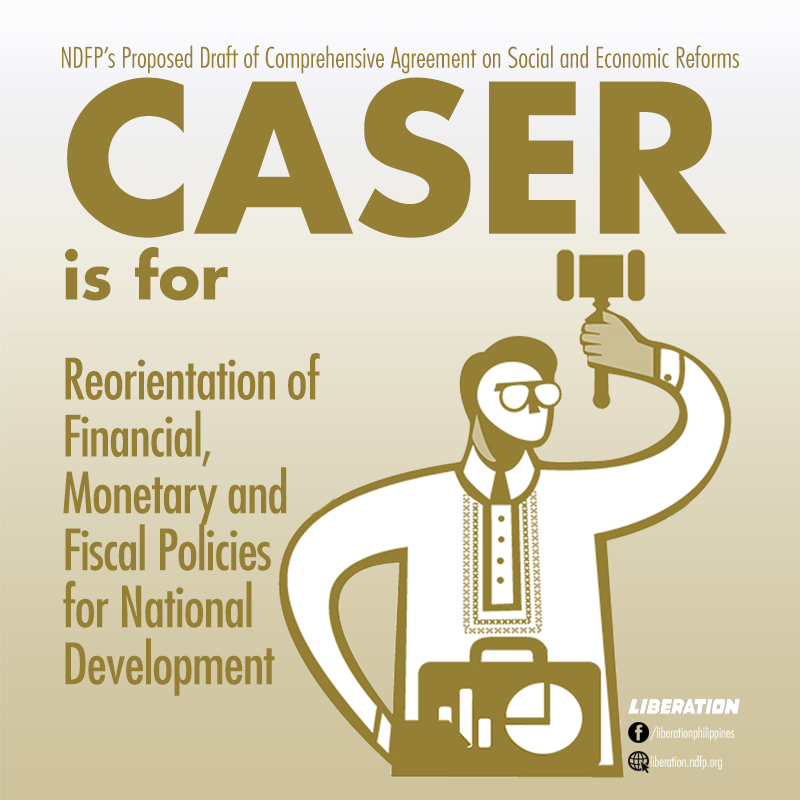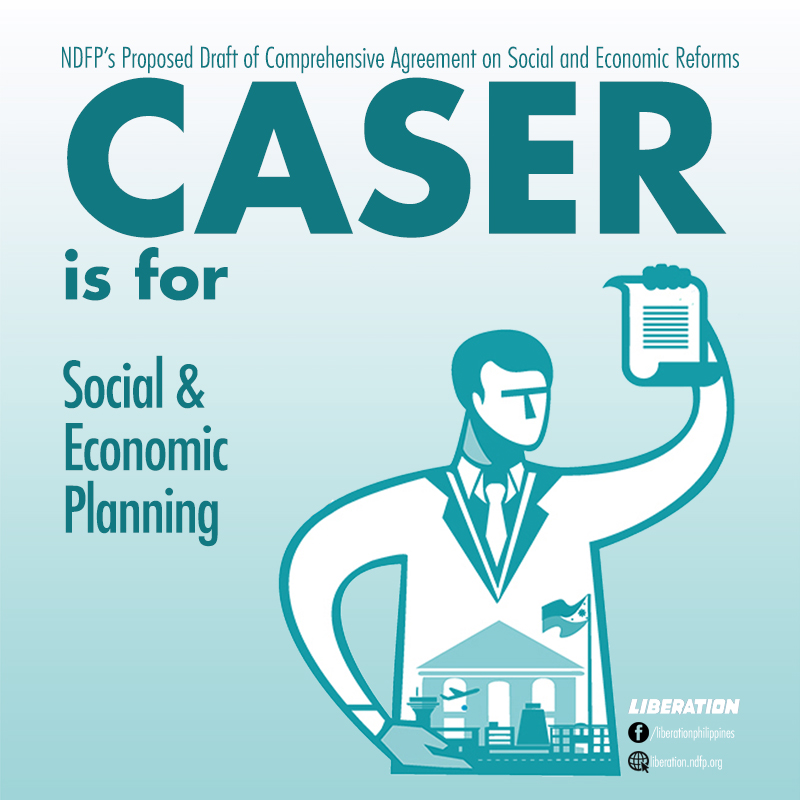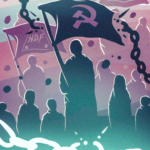DUTERTE REGIME GOES DOWNHILL AS REVOLUTIONARY MOVEMENT RISES
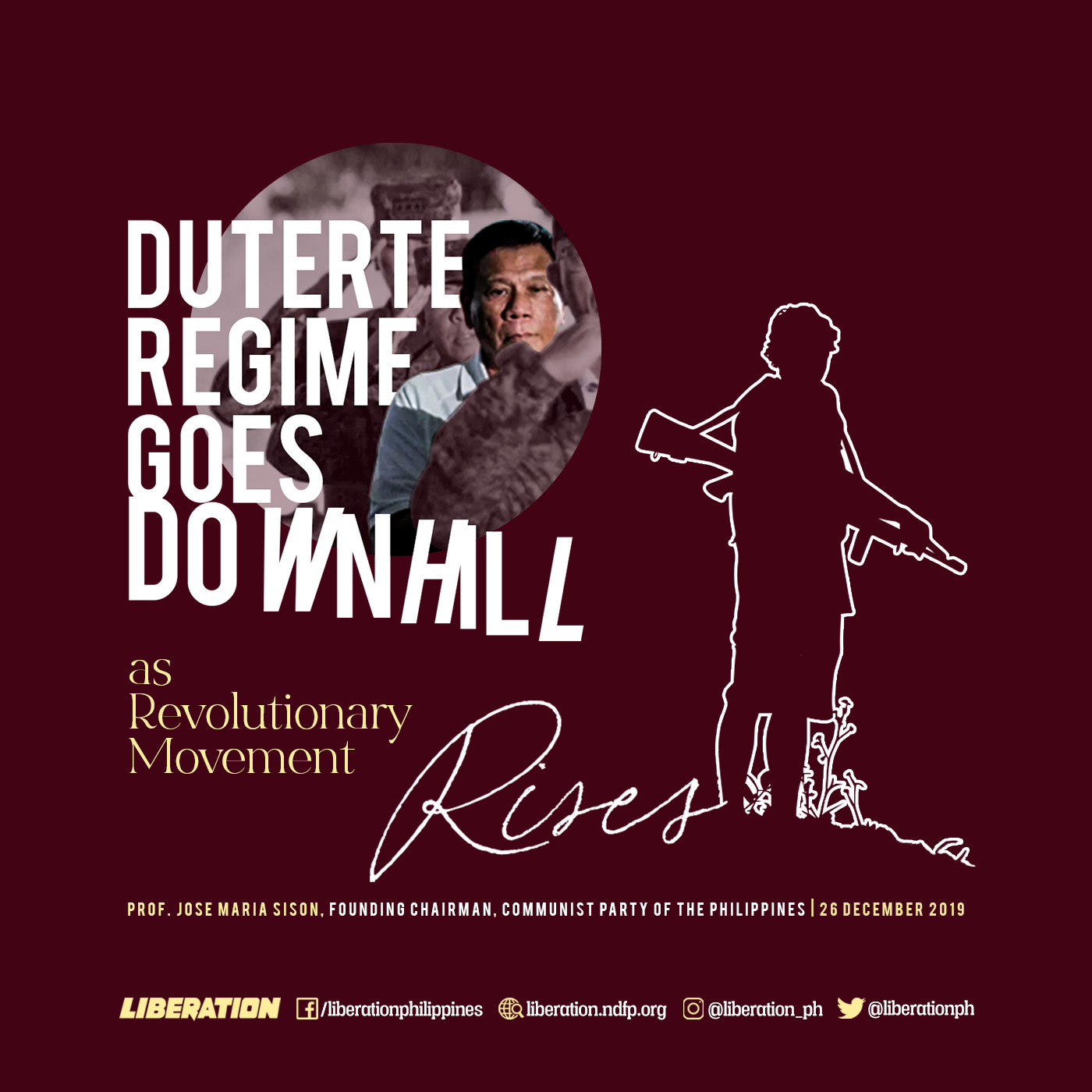
by Jose Maria Sison
Founding Chairman, Communist Party of the Philippines
December 26, 2019
In keeping with my historic title as Founding Chairman of the Communist Party of the Philippines (CPP) guided by Marxism-Leninism-Maoism, I convey my warmest revolutionary greetings to the cadres and members for continuing to strengthen their great and glorious party as the advanced detachment of the working class and as leader of the Filipino people and all revolutionary forces in the struggle for national and social liberation along the general line of new democratic revolution with a socialist perspective.
I salute you for your achievements in responding to the demands of the people for revolutionary change against the rotten semicolonial and semifeudal system dominated by foreign monopoly capitalism, domestic feudalism and bureaucrat capitalism. Like you, I honor most highly all the revolutionary martyrs and heroes of the CPP and the revolutionary mass movement for all their efforts and sacrifices in order to realize the accumulated and current victories in the struggle for national independence and democracy.
This is a time for you to celebrate your struggles, sacrifices and successes, to examine the objective conditions in the Philippines, the worsening crisis and the opportunities it presents, sum up your experiences and learn from positive and negative lessons, base yourselves on the strength that you have achieved and set forth the tasks and goals that you wish to realize in the ideological, political and organizational fields.
WORSENING CRISIS OF THE RULING SYSTEM
The objective conditions are exceedingly favorable for advancing the people’s democratic revolution because the traitorous, tyrannical, murderous, corrupt and deceptive Duterte regime has aggravated the chronic crisis of the ruling system by escalating the oppression and exploitation of the people and driving them to wage people’s war and all forms of resistance.
More than ever the regime has worsened the conditions of underdevelopment, high unemployment, low incomes, soaring prices of basic commodities and mass poverty. It has further bankrupted the economy by shunning land reform and national industrialization, increasing import-dependent consumption and rapidly making the local and foreign debt burden and tax burden of the people intolerably heavier.
Worst of all, colossal amounts of public funds are wasted on bureaucratic and military corruption and on futile schemes to destroy the revolutionary movement and impose a fascist dictatorship on the people. It is apt to describe the regime of state terrorism and unbridled greed as unwittingly the best recruiter of CPP members, Red fighters and other revolutionaries. It is also the best transport and supply officer of the New People’s Army for sending its troops for annihilation on terrain advantageous to guerrilla warfare.
Since he became president in 2016, Duterte has been obsessed with seeking to destroy the revolutionary movement in order to please US imperialism and the local reactionary classes. At first, he claimed to be “Left” and “socialist” and pretended to be for peace negotiations. But he used these pretenses only to cover up his all-out war against the people and the revolutionary forces in the countryside and further launch in the name of rabid anti-communism the series of repressive measures, especiallyProclamations Nos. 360 and 374 to Executive Order No. 70.
The regime has used the most brutal and deceptive methods to impose a de facto fascist dictatorship on the entire nation and undisguised martial rule in Mindanao and in so-called focus areas of attacks. Deviously named the whole-nation approach, the scheme to militarize and make fascist the entire government and society is totally and extremely counterproductive and costly. The broad masses of the people detest the systematic and gross violations of human rights through red tagging, fake surrenders, fake encounters, extrajudicial killings, looting, arson, bombing of communities and grabbing of land and resources for plantations, mining and logging.
All efforts of the Duterte regime to destroy the CPP and the revolutionary mass movement have failed. Thus, out of desperation, he offered once more peace negotiations with the National Democratic Front of the Philippines on December 5. Within 24 hours, he and his military and police officers exposed their own evil intentions by demanding that the peace negotiations be held in the Philippines and that the NDFP negotiating personnel put themselves under enemy duress, control and surveillance and make themselves available for slaughter at any time.
Nonetheless, the people’s demand for a just peace, the clamor of peace advocates for for peace negotiations and the willingness of the anti-militarist section of the Duterte regime support the consistent stand of the CPP and the NDFP to be open to peace negotiations and to seek all possible ways to counter the rampant violations of human rights and to propagate the people’s demand for basic social, economic and political reforms. Thus, the NDFP has agreed with the GRP to engage in reciprocal unilateral ceasefires from December 23, 2019 to January 7, 2020 in order to foster the environment favorable to the resumption of peace negotiations.
The resumption of the peace negotiations can be realized by reaffirming the mutual agreements since the Hague Joint Declaration of 1992, by superceding the presidential issuances that previously terminated and prevented peace negotiations and by laying the ground for the Interim Peace Agreement, which is a package of agreements involving the 1) general amnesty and release of all political prisoners; 2) the approval of articles of the Comprehensive Agreement on Social and Economic Reforms (CASER), particularly those on agrarian reform and rural development and national industrialization and economic development; and 3) coordinated unilateral ceasefires.
Notwithstanding the current ceasefire agreement and the probability of resuming the peace negotiations, the CPP and the entire revolutionary movement need to be vigilant and militant against the continuing scheme of the counter-revolutionaries and their imperialist masters whoseek in vain either the destruction or capitulation of the revolutionary forces at the expense of the national and democratic rights and interests of the Filipino people. So long as there is yet no final agreement that ensures a just peace, the people and their revolutionary forces have all the right to wage revolutionary struggle.
THE GROWING STRENGTH OF THE REVOLUTIONARY MOVEMENT
The CPP and revolutionary mass movement are invincible. They have been tempered by more than 50 years of revolutionary struggle against the ruling system and all the strategic plans devised by US imperialism and their Filipino puppets to destroy them. They keep on growing because the objective conditions for waging armed revolution are increasingly favorable and the broad masses of the people demand revolutionary change. On the basis of the CPP publications, I am well aware that the CPP is resolutely and vigorously building itself ideologically, politically and organizationally.
It continuously educates and trains the new recruits and its accumulated membership of tens of thousands in the theory and practice of Marxism-Leninism-Maoism. As the leader of the revolutionary movement, it carries out the people’s democratic revolution by skilfully strengthening itself, waging armed struggle and availing of the united front. It conducts mass work and builds the mass organizations of various exploited classes, strata and sectors of Philippine society. It keeps on creating new units of the people’s army and the auxiliary forces of the people’s militia and the self-defense units in mass organizations.
It engages in alliance work by relying mainly on the basic toiling masses of workers and peasants, winning over the middle forces and taking advantage of the splits among the reactionaries in order to isolate and destroy the power of the enemy. At the moment, the Duterte regime is encircled by the legal democratic movement, the revolutionary movement and by the intrasystemic conservative opposition. As the reactionary government is corrupt, bankrupt and decadent, the CPP creates the organs of democratic political power to displace the power of the reactionary state in the countryside until conditions are ripe for the seizure of the cities dominated by the exploiting classes.
In the course of its ideological, political and organizational work, the CPP engages in criticism and self-criticism in order to correct errors and shortcomings in a timely and periodic manner, to improve work and style of work and achieve bigger and better results. In the course of the current rectification movement and for an extended period, it is solving the problem of conservatism which has overemphasized mass work at the expense of launching tactical offensives in certain areas and which has been characterized by overdispersal of full-time small units (squads and teams) of the people’s army.
The CPP is ensuring that in a guerrilla front the command platoon or main unit of a company is relatively concentrated and capable of collecting actionable information, planning and carrying out tactical offensives; and two other platoons or secondary units are relatively dispersed for mass work but prepared for tactical offensives whenever necessary. The NPA personnel are rotated periodically for combat and other non-combat tasks in order to develop their skills in a well-rounded way. In the face of enemy onslaughts, NPA combat units are oriented to seize the initiative and wage offensive operations to annihilate enemy units, destroy their facilities and force them to guard duty.
In the finest communist and patriotic tradition, the stronger regions of the revolutionary movement are sharing competent and battle-tested cadres and Red commanders and fighters to help strengthen weaker regions and raise higherthe overall fighting capacity of the entire revolutionary movement. The revolutionary forces under concentrated attacks by their enemy are faring well with the employment of major and minor tactics of guerrilla warfare and are developing the strategy and tactics of counter-encirclement. Those forces under relatively less concentrated enemy attacks are doing their best to launch tactical offensives by way of helping those under more concentrated attacks.
In response to the expectations of the Filipino people, the CPP is determined to lead the NPA in bringing about the full development of the strategic defensive of the people’s war, from the middle phase to the advanced phase, through extensive and intensive guerrilla warfare. The regional leading organs of the CPP are developing the coordination and interoperability of two or three neighboring guerrilla fronts for the purpose of defense and offense. The entire CPP is ever determined to create new guerrilla fronts by winning battles and campaigns in the direction of developing more NPA companies and reaching eventually the stage of the strategic stalemate.
The worsening crisis of the ruling system and the people’s hatred of the Duterte reign of terror and greed make it impossible for the coercive and deceptive instruments of the state to know and suppress all the revolutionary forces and their activities. The evil agents of imperialism, feudalism and bureaucrat capitalism are weighed down by their own brutality and corruption. The more violent and intimidating they become the more they goad the people to wage all forms of resistance.
The Duterte regime is going downhill to hell and cannot find enough relief from its imperialist masters to overcome the rising revolutionary movement of the Filipino people. Despite being able to retain overall dominance over the Philippines, the US is increasingly looking at Duterte as more of a liability than an asset as he fails to fulfill his pledge to destroy the revolutionary movement and as he allows China to gain advantages that prejudice the economic and security interests of the US in the Philippines.
At the same time, while pressuring the Duterte regime to do a more flagrant surrender of Philippine sovereign rights, China has not promptly complied with its promises to deliver extremely onerous loans and overpriced infrastructure projects, despite the already treasonous waiver of Philippine sovereign rights over the West Philippine Sea and the rich oil, gas and marine resources under it as well as the lopsided agreement for China to explore and exploit energy resources and monopolize the valuation of the costs and the information on production.
WORSENING CRISIS OF THE WORLD CAPITALIST SYSTEM
The world capitalist system is in grave crisis. The major capitalist economies, the so-called emerging markets and the many underdeveloped economies have become depressed since the economic and financial crash of 2008. The strategic decline of the US has accelerated because of the costly ceaseless wars of aggression and the bankruptcy of the neoliberal economic policy. The US has become blatantly protectionist and blames China’s state monopoly capitalism for enjoying large export surpluses in trade with the US and using state-owned enterprises and state planning to be able totake advantage of the economic, trade and technological concessions from the US in achieving strategic economic and security goals.
The main partners in neoliberal globalization for several decades are now at odds with each other. Their conflicts are the main feature of the intensifying inter-imperialist contradictions. They arise at a time that the US is made desperate by its own strategic decline but is still in a position to expose China’s sitting on a mountain of bad debts and to upset and sabotage China’s accumulation of surplus capital for imperialist deployment through the Belt and Road Initiative. We can expect more conflicts to come from the two imperialist powers over the Philippines, the South China Sea, East Asia and in other regions of the world.
The rapidly worsening crisis of the world capitalist system is causing the intensification of inter-imperialist contradictions. The traditional imperialist powers headed by the US and the new imperialist powers headed by China and Russia are now locked in a bitter struggle for a redivision of the world. At the same time, the crisis has resulted in the escalation of the exploitation and oppression of the proletariat people both in the advanced capitalist countries and underdeveloped countries. Thus, we see today the unprecedented spread and intensity of mass protests on a global scale, especially against neoliberalism and fascism. The current mass protests are harbingers of greater struggles of the people of the world for national liberation, democracy and socialism against imperialism and all reactions.
Quite a number of the unarmed mass movements have the potential of being transformed into people’s war to address the central question of political power in the face of the growing propensity of the imperialists and reactionaries to use fascist terror to be able continue the extreme forms of exploitation under neoliberalism. The Philippine revolution is favored by the worldwide rise of popular resistance against imperialism and reaction. Consequently, it can accelerate its advance and further strengthen its role as torch-bearer of the world anti-imperialist and proletarian-socialist revolution.
Long live the Communist Party of the Philippines!
Long live the people’s democratic revolution with socialist perspective!
Long live the Filipino proletariat and people!
Long live the proletariat and peoples of the world!
Long live proletarian internationalism and anti-imperialist solidarity of peoples!
#CPP51
#ServeThePeople
#HanggangSaTagumpay
#JoinTheNPA
#JoinTheParty
#FightDictatorship
#Padayon2020
—–
VISIT and FOLLOW
Website: https://liberation.ndfp.info
Facebook: https://fb.com/liberationphilippines
Twitter: https://twitter.com/liberationph
Instagram: https://instagram.com/liberation_ph

